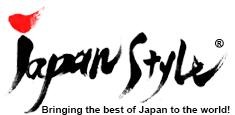–Introduction–
![]() “Wasabi Stories” is a quotation and summary of a column which touches ones heart or not found on the internet.
“Wasabi Stories” is a quotation and summary of a column which touches ones heart or not found on the internet.
It is a Japanese famous person’s story extracted from the NIKKEI news paper.
The purpose in posting the column in JAPAN Style is to cheer you up and to make you feel “it’ was worth reading!”
Wasabi (Japanese horseradish or mustard) is spicy and stimulate your nose and make you teary.
The columns in “Wasabi Stories” hopefully spice your heart and sometimes make you teary!
The stories were originally sent as E-mail Newsletter in Japanese. Some are a little old but we’ll eventually catch up with new ones.
“There is something that only you can do”
Today’s story teller is a nonfiction writer, Hazuki Saishou.
The story is about “deadline”.
“Although a writer misses a deadline, he/she never forgets the deadline. The body of a full-time writer is made so.”
Before she became a writer, she was an editor.
According to Saishou, an excellent editor can grasp writers’ physiology; he/she pretends to forget deadlines and never presses writers, and as soon as he/she gets a manuscript, he/she reads and tells his/her thoughts on it.
The writer gets impressed and feels that “he/she waited for me till so late.”
And that’s how they build a relationship with mutual trust.
Saishou evaluates her previous editor work as “so bad”.
When she reminded deadlines to the writers, she almost urged them to meet their deadlines.
“Fax to the writer a few days before the deadline, and Fax again the day before, then call him on the deadline day. Although I allowed him for a week’s delay, I ask him ‘how’s it going? It’s almost deadline in a few days.’ I was extremely cautious.”
Saishou also quoted from a biography “Max Perkins: Editor of Genius” by A. Scott Berg.
Max Perkins (1888-1947) was an editor of Charles Scribner’s Sons, and is famous as the editor who found Ernest Hemingway’s talent.
When Perkins’s young co-worker was so tired of his editor work, their chief editor said,
“Any office worker can do 90% of editor’s work. But once in a month or maybe in a half year, you face a trouble that only you can cope. That’s the time when your life experience and knowledge serve.” (This is not quoted from the original book but Japanese translated version.)
Saishou looks back her editor days.
Her reminders were so pushy that the writers got very annoyed, and they kept breaking the appointments they made with her to hand manuscripts, although; she could devise her way of correspondence by those experiences.
She concludes “the certain thing was that the breathtaking ‘editor-writer-games’ around deadlines were full of the feeling that we are going to produce something together.”
The NIKKEI Feb/12/2009 by Hazuki Saishou (nonfiction writer)
You should follow me on Twitter HERE.









Recent Comments